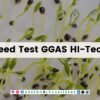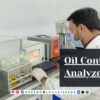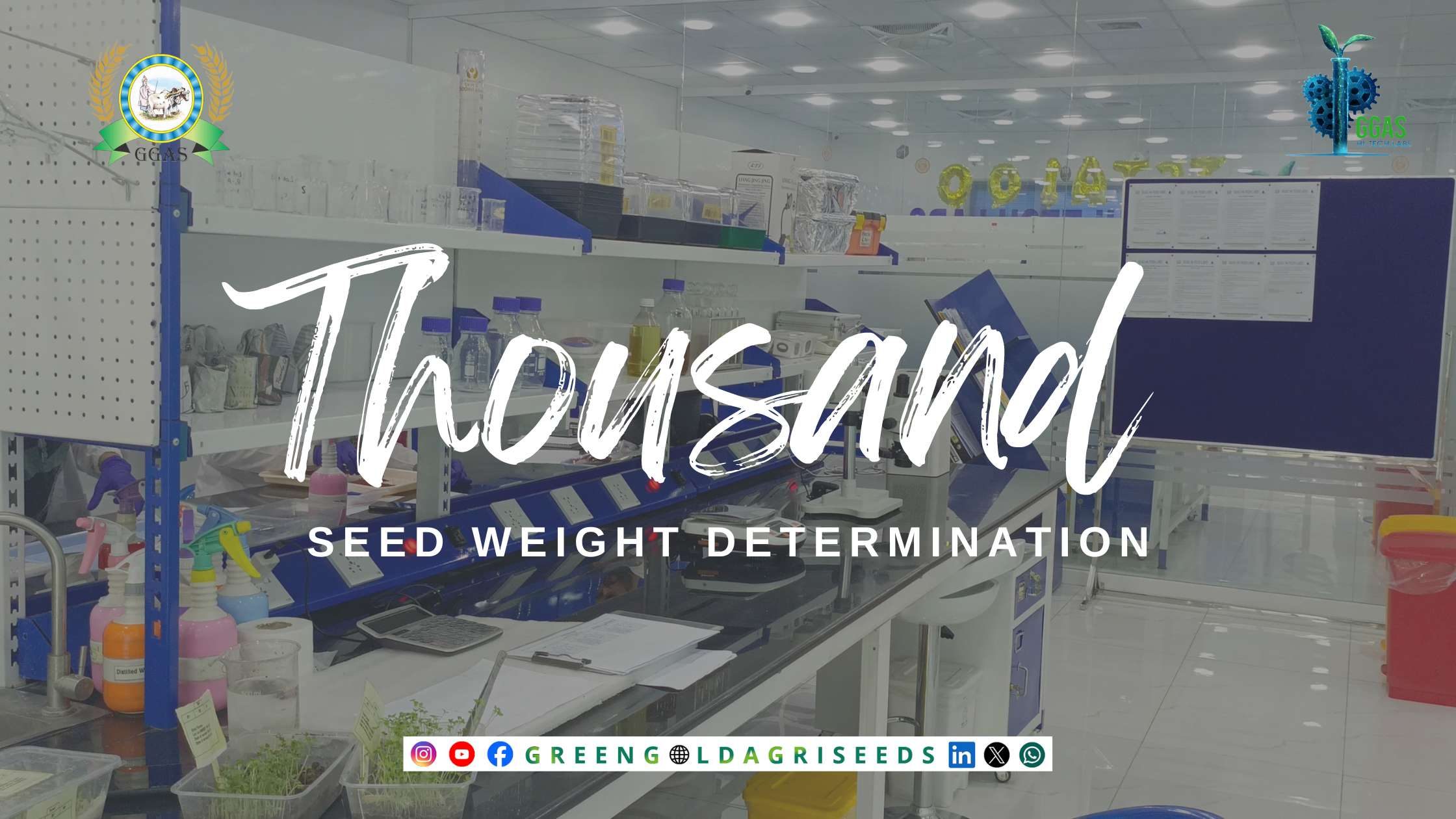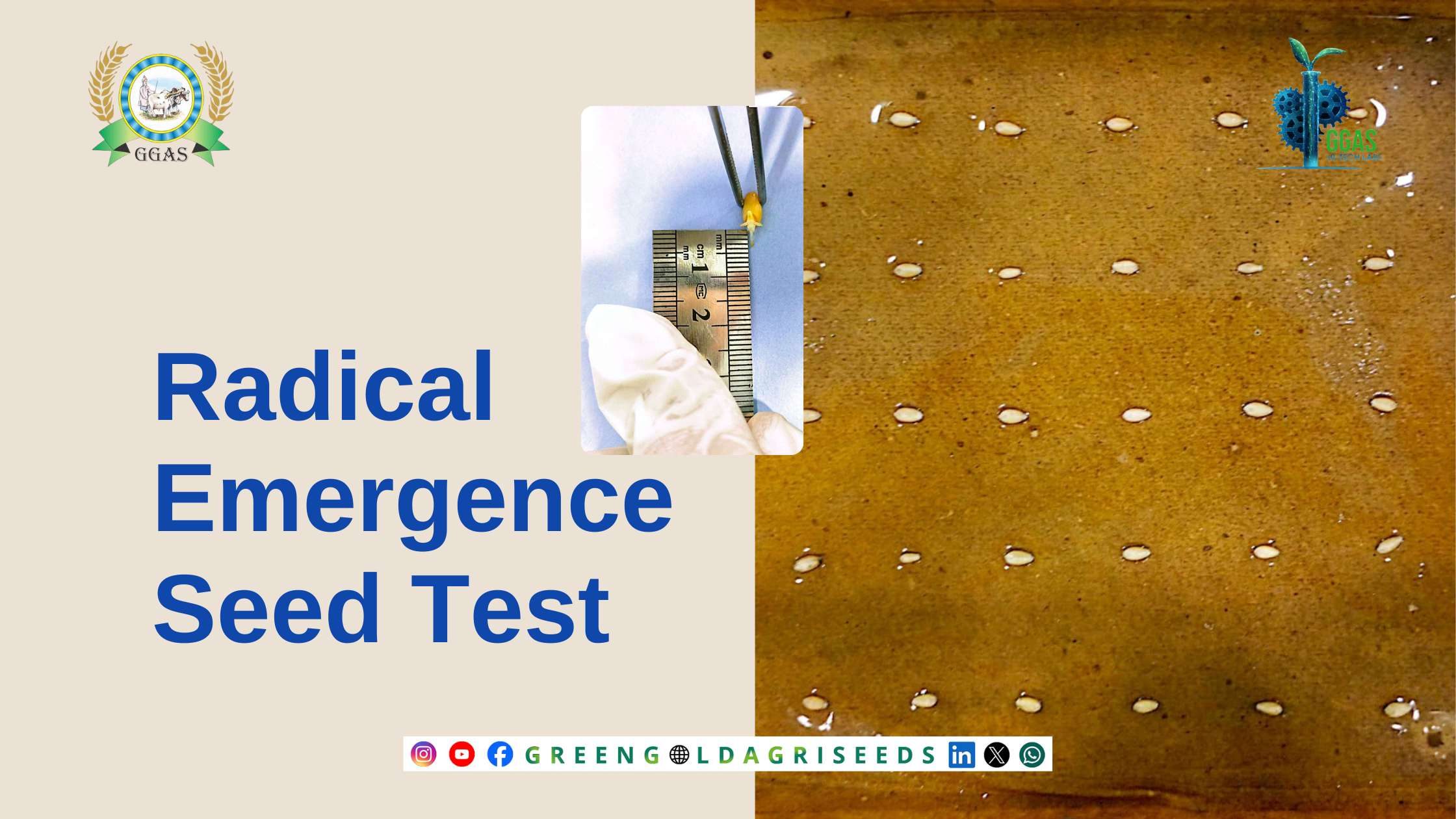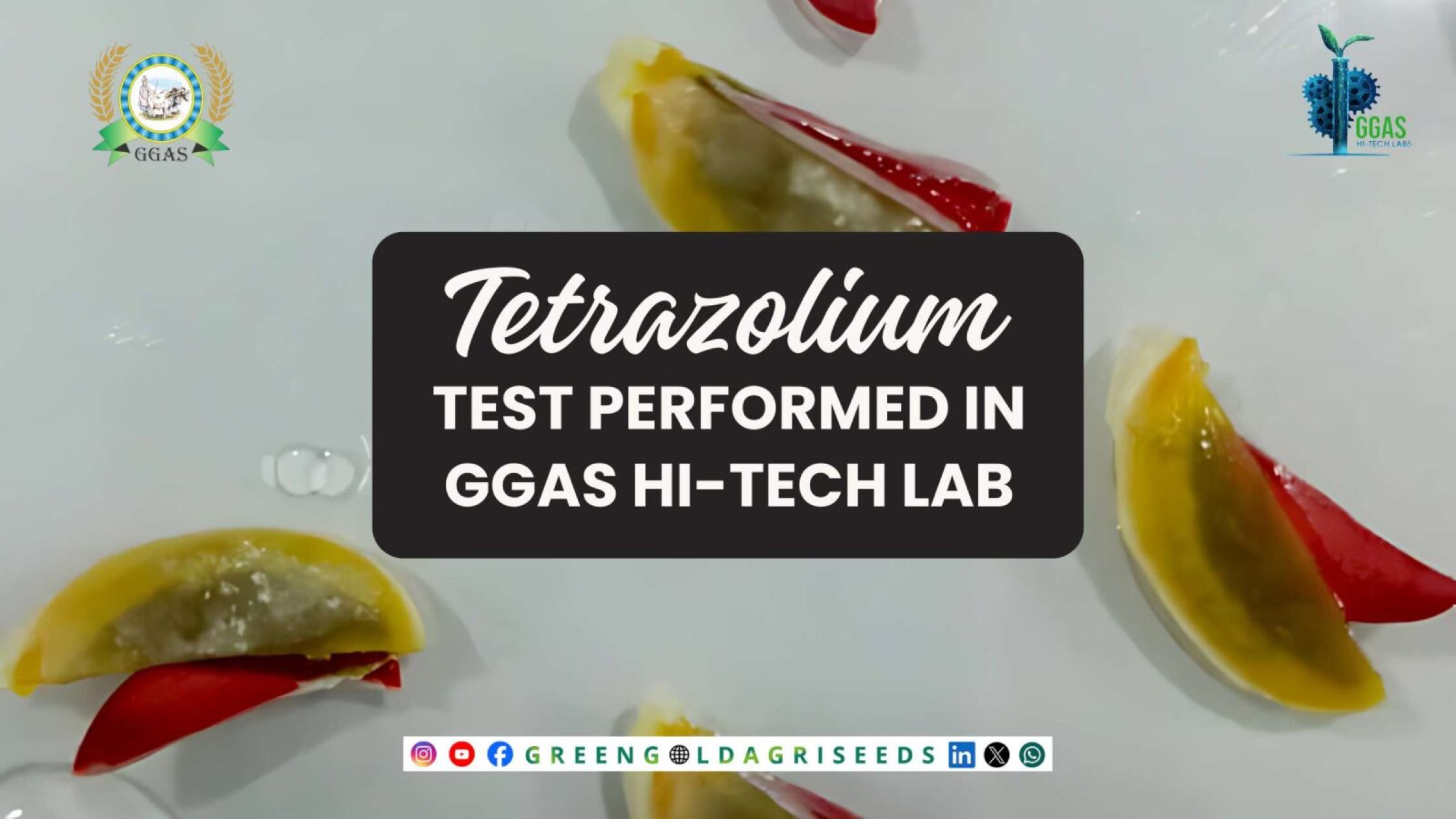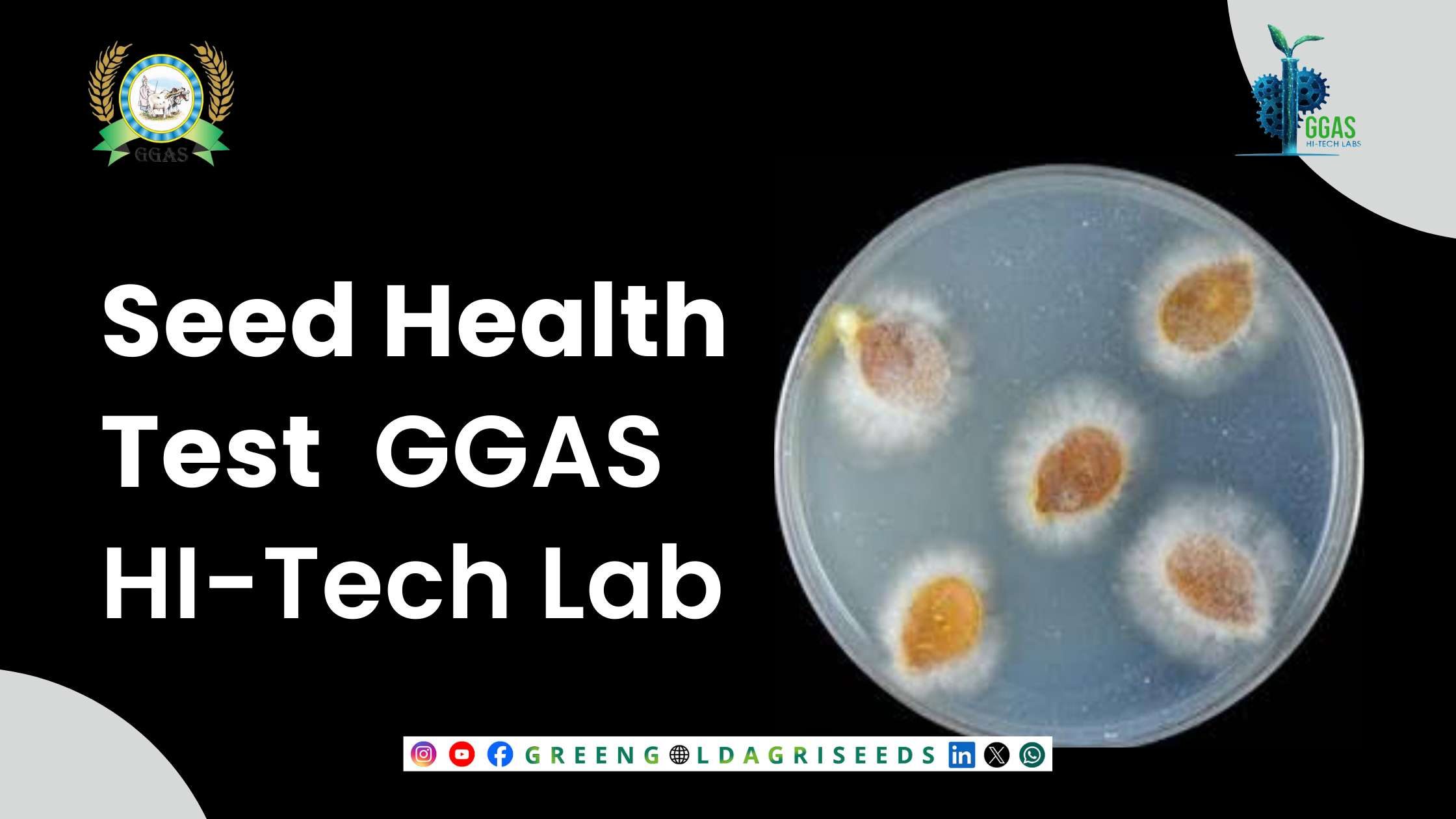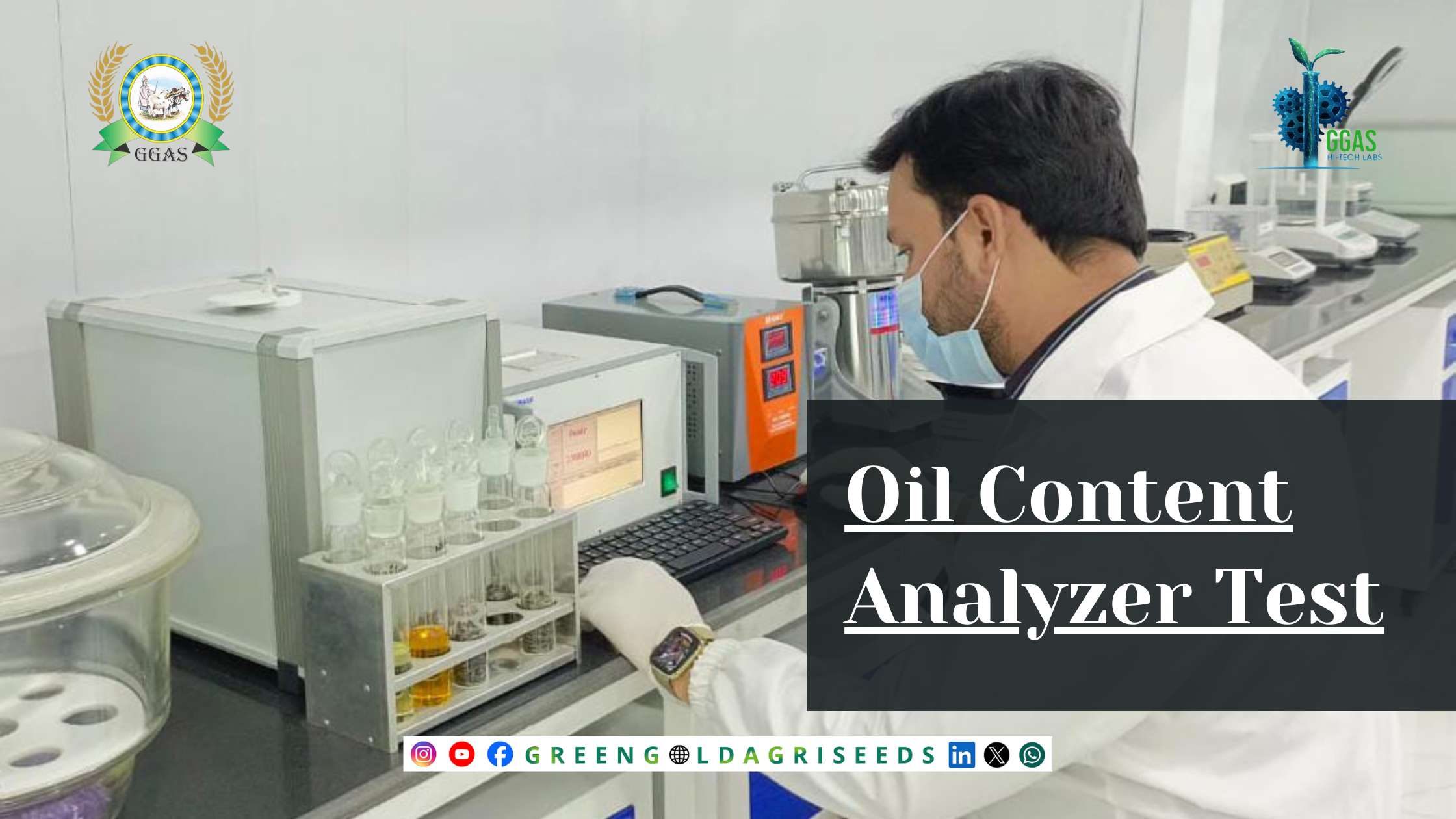No products in the cart.
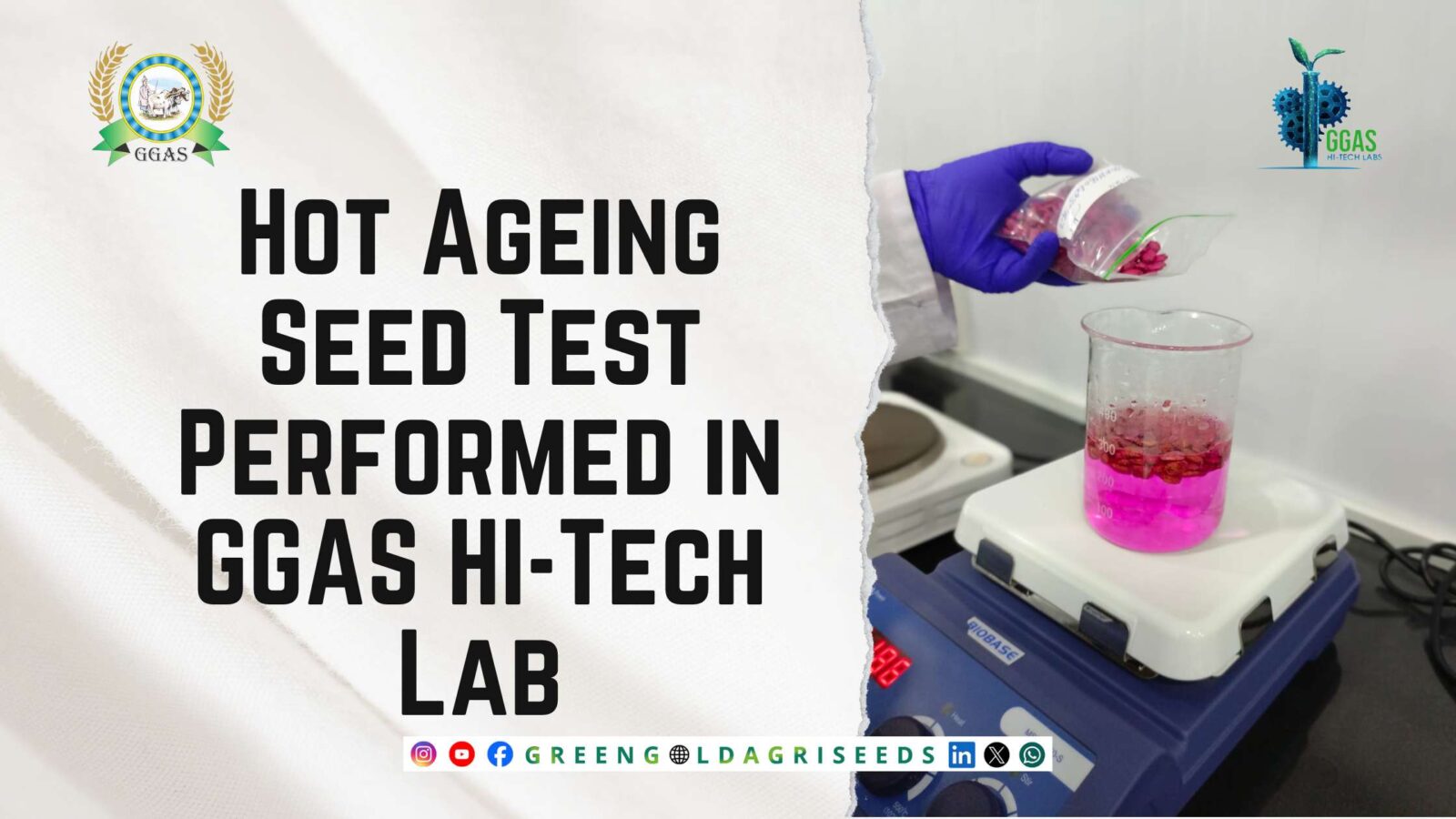
Hot-Ageing Seed Test Performed in GGAS HI-Tech Lab
The hot ageing test, sometimes referred to as the accelerated aging test, is a scientific technique
used to evaluate seed vitality under accelerated aging conditions and assess it’s storage life.
This test is conducted by speeding up seeds’ natural aging process using optimized artificial means.
PROTOCOL:
- To perform a hot aging test, seeds are exposed to high temperature (40-45°C) and high humidity (75-90%) for 1-4 weeks. After aging, seeds are cooled down and evaluated for their germination potential.
- The results are compared with non-aged seeds to assess the impact of aging on seed viability and document your findings.
BENEFITS:
- The hot aging test helps farmers evaluate seed longevity and stress tolerance, ensuring seeds will remain viable under challenging conditions, leading to more reliable planting and better crop performance.
- It demonstrates seed stability and quality over time, meeting international standards and enhancing buyer confidence by proving that seeds can withstand storage conditions and
still perform well.


